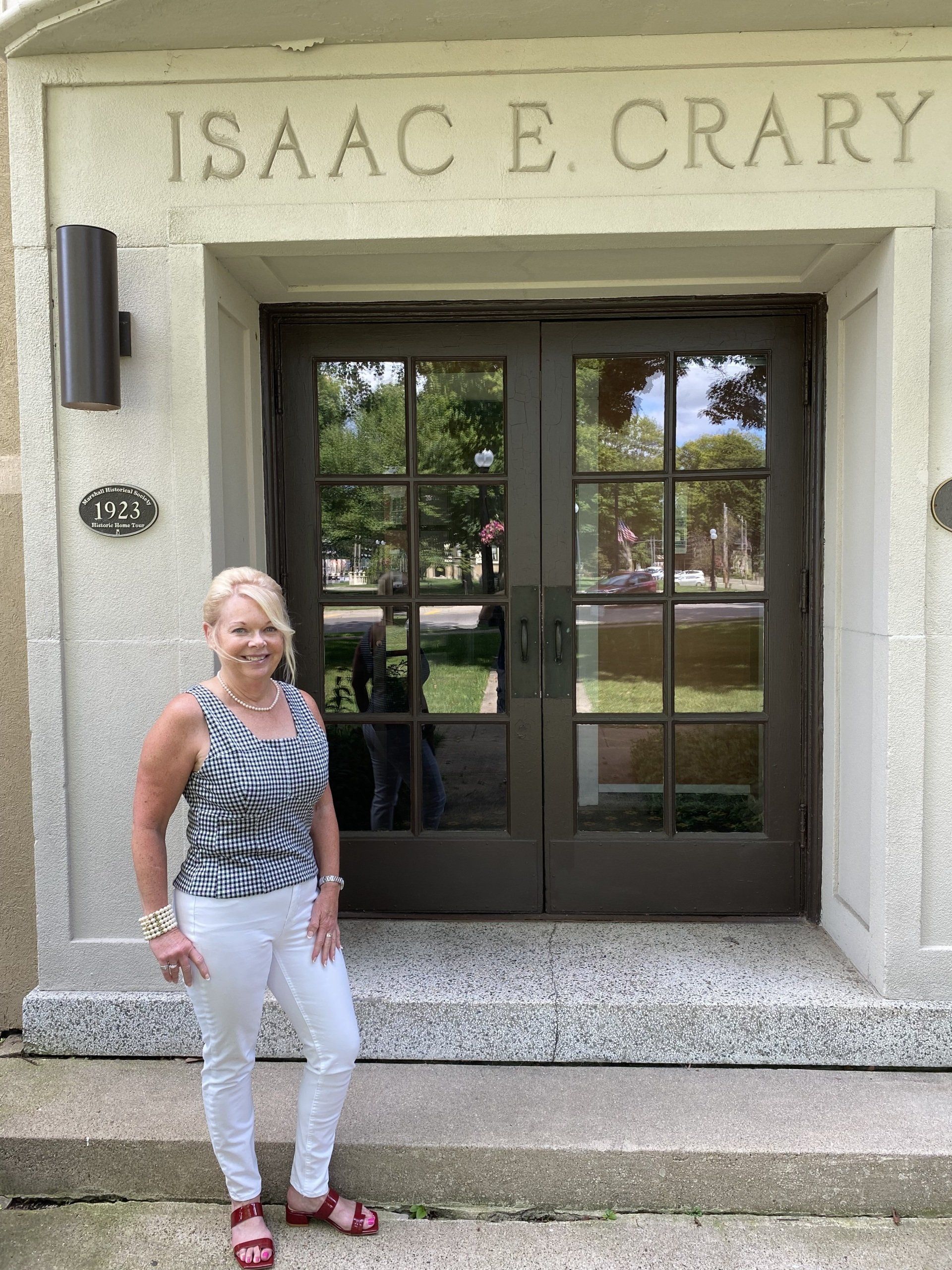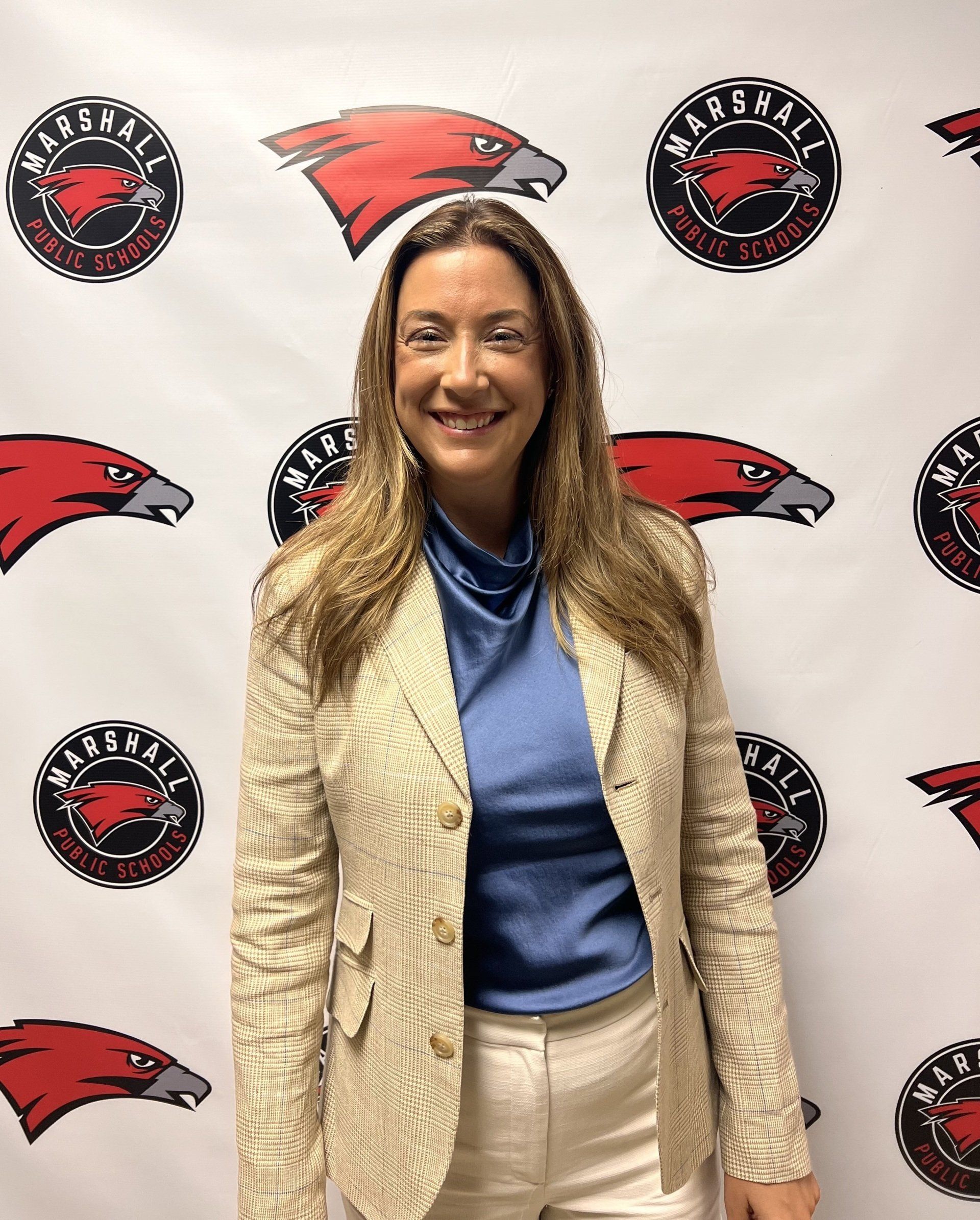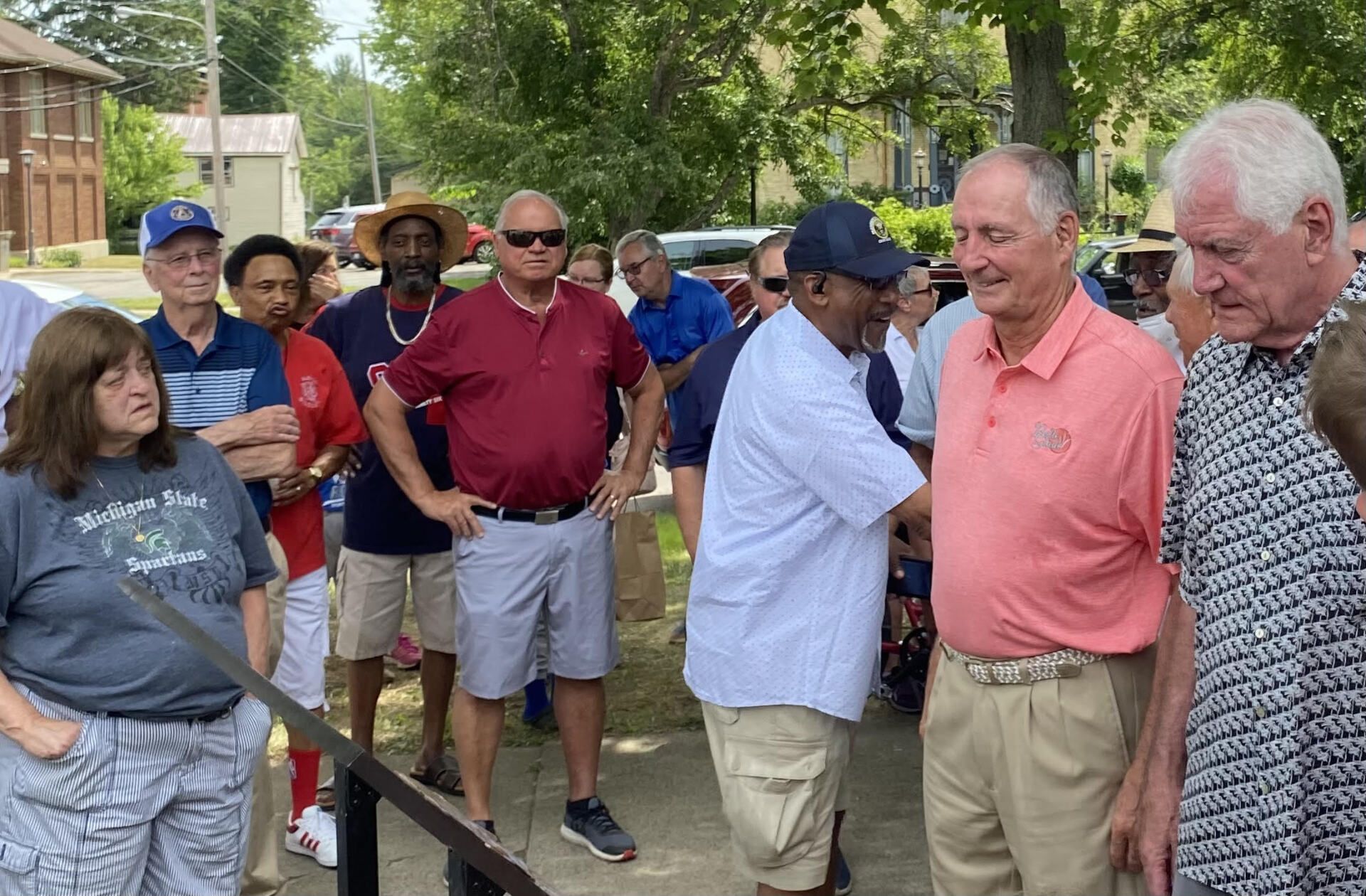3rd Annual Wolf Tree Film Festival is Jan. 23
John Hendler • January 15, 2021
The 3rd Annual Wolf Tree Film Festival, showing on Jan. 23 at 6 p.m., will showcase nine short films set in the Great Lakes region or by filmmakers who reside in or grew up in the Great Lakes region.
Hosted by the Franke Center for the Arts and Marshall’s Youngish Professionals Committee, the Wolf Tree film festival in past years has been held at Franke Center, an arts complex that is the proud home of world-class concerts, inspiring theater, and award-winning movies. The festival this year will be fully virtual and will include screenings of each selected film and an awards presentation.
The event will feature one of the stars from the CBS sitcom Young Sheldon, Lance Barber.
Barber has appeared in numerous shows on the small screen as well as feature films. An alumnus of Chicago’s Second City, he played the role of Paulie G on HBO’s critically acclaimed The Comeback, which The New York Times described as “among the great villains of television comedy.”
Barber will emcee the event and do a private filmmaker’s Q&A session with the selected filmmakers. He was born and raised in Battle Creek and he began acting with the Pennfield High School Drama Club and later joined the theatre program at Kellogg Community College and the Barn Theatre.
“As a native of Battle Creek, I appreciated having access to artistic opportunities as a kid. I’m excited to be a part of this event that celebrates quality filmmaking from hometown area and the entire Great Lakes region,” said Barber.
Franke Center Executive Director Jacob Gates said the virtual format will allow people from anywhere the chance to watch the films.
“If you have a film buff cousin living in California, they could watch, then the two of you could discuss the films despite being hundreds of miles apart,” said Gates.” Hopefully, this will allow more people to enjoy the festival than in the past, since we aren't limited by seating capacity. There will also be a live chat function that will allow people to discuss the movies in real time, which should be fun. Most of all, of course, it allows people to watch the films from the comfort of their own homes and stay safe.”
Jennifer Conley Darling, the chair of Wolf Tree’s film committee, noted: “Each year, the number of submitted films and level of talent continues to grow for the festival. I’m also thrilled the committee selected a film called As We Are by a Marshall native, Michael Faulkner. It’s pretty amazing how much talent comes out of our town.”
The committee, comprised of Darling, Cathy Bovitz, Beau Hutchings, Gates, Maddie Metzger, Kristy Morse, Isaiah Potter and Erin Skidmore, reviewed nearly 80 films from various states and countries. The final nine that were selected include a variety of genres, including comedy, drama, documentary, sci-fi, thriller and animated. The festival will be presented in two separate acts, starting at 6 p.m.
The first Act kicks off with Narcissick (from Canada/directed by Hugo Lacasse), a drama about an “Instababe” who puts her physical and mental health on the line to compete against a younger, more popular rival. Salt River Water Walk (from Canada & Minnesota/directed by Krista Davis, Jenny Zander) is a documentary that travels with the Salt River Water Walkers, describing an Indigenous-led ceremony as it creates community and builds relationships with the earth through the shared goal to care for the water. Pegasus (from Illinois/directed by Orlando Leroi) is a drama, Sci-Fi student film about a young black father’s search for freedom that takes him beyond the limits of the atmosphere. Medical Help (from Battle Creek, Michigan and Maryland/directed by Lanessa Miller) is an animated video illustrating the original swing jazz song “Medical Help” by Dwight L. Wilcox II with relevance to the era in which we are living. Rise (from Michigan/directed by Hannah Byrd) is a documentary about a previously homeless man who takes a ride through his past in order to understand the present and how it affects his future.
After a short break, the first film of the second act is Bathroom Break (from Minnesota/directed by Simone LeClaire), a comedy about a woman who gets more than she bargained for when she spends her night out hiding in the bathroom. As We Are (from Marshall, Michigan and California/directed by Michael R Faulkner) is a documentary about a man who was diagnosed with autism and who, along with his mother, went on to discover his gift for music together. Lily in the Maze (from New York and Michigan/directed by Alexandra Emmons and Andrew Juhl) is a thriller about a quiet introvert, who deals with a change in his routine on the same day a woman from his past appears. The final film of the night is Satiety (from United Kingdom/directed by Anna Rust), a drama and thriller about a troubled woman who records her journey to finding her mother after she was abandoned more than a decade ago.
Tickets are $15 each and are available on the Franke Center website at https://thefranke.org/events.
Many have wondered why the name “Wolf Tree?” According to legend, the Wolf Tree was a lone, prominent tree that once stood in the middle of Marshall. The first settler in the area sought refuge in the heights of the tree as wolves and bears roamed the dirt lane and forest that would one day become the city’s downtown. Later, a platform was built in the large oak’s branches where it is said a sentry, seeking the faint glow of wolves’ eyes, would hunt, eager to protect the village from threats hidden in the darkness below.

Get to know MPS Superintendent Becky Jones as she looks ahead to the new school year Marshall Public Schools Superintendent Becky Jones said she has always had a passion for wanting to work in education. Even though her master’s degree is in business from Spring Arbor University, Jones originally went to school at Eastern Michigan University to be a special education teacher when she was an undergraduate before making the switch to the business field. “I always wanted to work in some sort of line in education and be a part of the school system,” Jones said. “My aunt was a special education teacher in an early childhood role and she worked for Jackson ISD. That was part of the reason why I wanted to go to school to be a special education teacher when I started. I ended up changing and I’m not 100% sure why I changed, but it’s interesting that I ended up into the system in the career path of doing that.” After Jones graduated from EMU, she landed a job in Jackson as a business manager for a construction company before being hired at Jackson County Intermediate School District in business operations. Jones has been in the school system ever since her time at Jackson County ISD before coming over to Marshall Public Schools, where she served as the director of business operations for the district for eight years. Jones said the relationships she built over the eight years in that role has helped her transition into the superintendent role. “I think with how I am as a leader and how I am as a person, I like to build a lot of personal relationships,” said Jones. “So I think that’s just something that has come natural for me over the eight years, I’ve just always built really good relationships with the people that I work with. I care about the people, I care about families, I care about our students. It didn’t seem unnatural for me to fill into the role of interim, because it was something I wanted to do.” Jones was appointed interim superintendent in May 2021 after the departure of former Superintendent Randy Davis. After eight months, the Marshall Public Schools Board of Education unanimously agreed to hire Jones into the permanent role. When reflecting on when she officially was hired into the permanent role, Jones commended the many who have supported her during the process and said she feels honored to now be serving in the role. “I think that educating people’s children and educating our youth is a very important role,” said Jones. “It’s an honor and a blessing in how I look at it.” Jones added that she is driven and inspired by being able to serve two communities, being students and families in both Marshall and Albion. “When I look at the district as a whole, I look at it as serving two communities,” Jones said. “Obviously we have an interesting history as a school system with bringing Albion into the system and serving both Albion and Marshall. That to me alone, just having the two communities that we get to serve, is a wonderful thing. Both communities have a lot to offer when you look at it. There are a lot of great people, leaders and businesses that are really supportive of the school system and really supportive of our kids. That’s one of the many benefits of this role.” Jones added she is also inspired by being able to serve the students as a whole and being able to interact with them and the teachers who are involved in their learning development. “Also the kids and the interaction with the kids. We get to go out to buildings and interact with the kids and interact with the teachers,” Jones added. “We have a wonderful staff in the district. When I look at the role, I don’t look at it as a superintendent role, I look at it as ‘I get to work with these amazing people who work for Marshall Public Schools and I get to meet all of these wonderful community members.’” In a March article from the Battle Creek Enquirer, former Board President Richard Lindsey acknowledged Jones played a key role in the annexation of the Albion School District and Marshall Public Schools in 2016. Jones further explained how she was involved in that process. “I walked alongside Dr. Davis when annexation happened,” she said. “I sat in all the meetings, went through all the financials and worked on all those things and what it would look like. So I was right alongside working through the annexation piece of it. Through annexation, there were a lot of people that care about both communities and about wanting to make sure that all of our kids have equal opportunity and equal access to good education. To me, in my eyes, that’s the one thing that matters, is equal access to kids for education.” As superintendent, there are both challenges ahead for Jones along with some things that she is excited about in terms of plans the district is implementing going into the school year. “I’m really excited about our strategic plan,” Jones said. “I think it’s really important for organizations to have a vision for what they are working towards. And I think that we’ve clearly written out what our vision is as an organization. I’m really looking forward to putting that in place.” As far as challenges go, Jones brought up being able to educate students in a post-pandemic world and focusing on providing support for students and families on what they need to further their education in light of all the disruptions that took place in schools during the past two years. “I think we still have a lot of challenges post pandemic when we’re looking at children and we’re looking at education,” Jones said. “We as a district need to sit down and focus on where our kids are at and where we need our kids to be in terms of education. So, I think for this year it’s really going to be a huge focus on what support we can give our families and the things we can do to really get our kids educated and where they need to be in a post pandemic world.” Another challenge in Jones’ eyes is how to put a new bond on the table and how to get community members to support one this time around. Last November, a $45.6 million bond was voted down by a 2 to 1 margin. She also mentioned the school’s sinking fund millage that she said will be on the ballot for voters this November. “We have $75 million worth of needs,” said Jones. “We obviously had a failed bond attempt and those needs haven’t gone away. So we’re going to have to go back out to the community in looking at a bond and (figure out) what we need to do. We need to sit down and talk about where we’re at with that. Another thing is with our sinking fund millage. That is set to expire and we’re going to be putting a renewal on the November ballot. It is a renewal but it’s not going to be worded as a renewal, because we’re going to add in security and technology services for that. So we’re really going to have to get out there and communicate effectively with the communities about that.” When Jones’ time is done at MPS, whenever that may be, she said she just hopes for both communities to look at the school district and be proud of what it represents. “I want both communities to be proud of their school system,” she said. “I want Marshall Public Schools serving both Marshall and Albion communities and for it to be a choice district for those communities. I want them to be proud of the work we do here and how we educate their kids.”

Get to know MPS Superintendent Becky Jones as she looks ahead to the new school year Marshall Public Schools Superintendent Becky Jones said she has always had a passion for wanting to work in education. Even though her master’s degree is in business from Spring Arbor University, Jones originally went to school at Eastern Michigan University to be a special education teacher when she was an undergraduate before making the switch to the business field. “I always wanted to work in some sort of line in education and be a part of the school system,” Jones said. “My aunt was a special education teacher in an early childhood role and she worked for Jackson ISD. That was part of the reason why I wanted to go to school to be a special education teacher when I started. I ended up changing and I’m not 100% sure why I changed, but it’s interesting that I ended up into the system in the career path of doing that.” After Jones graduated from EMU, she landed a job in Jackson as a business manager for a construction company before being hired at Jackson County Intermediate School District in business operations. Jones has been in the school system ever since her time at Jackson County ISD before coming over to Marshall Public Schools, where she served as the director of business operations for the district for eight years. Jones said the relationships she built over the eight years in that role has helped her transition into the superintendent role. “I think with how I am as a leader and how I am as a person, I like to build a lot of personal relationships,” said Jones. “So I think that’s just something that has come natural for me over the eight years, I’ve just always built really good relationships with the people that I work with. I care about the people, I care about families, I care about our students. It didn’t seem unnatural for me to fill into the role of interim, because it was something I wanted to do.” Jones was appointed interim superintendent in May 2021 after the departure of former Superintendent Randy Davis. After eight months, the Marshall Public Schools Board of Education unanimously agreed to hire Jones into the permanent role. When reflecting on when she officially was hired into the permanent role, Jones commended the many who have supported her during the process and said she feels honored to now be serving in the role. “I think that educating people’s children and educating our youth is a very important role,” said Jones. “It’s an honor and a blessing in how I look at it.” Jones added that she is driven and inspired by being able to serve two communities, being students and families in both Marshall and Albion. “When I look at the district as a whole, I look at it as serving two communities,” Jones said. “Obviously we have an interesting history as a school system with bringing Albion into the system and serving both Albion and Marshall. That to me alone, just having the two communities that we get to serve, is a wonderful thing. Both communities have a lot to offer when you look at it. There are a lot of great people, leaders and businesses that are really supportive of the school system and really supportive of our kids. That’s one of the many benefits of this role.” Jones added she is also inspired by being able to serve the students as a whole and being able to interact with them and the teachers who are involved in their learning development. “Also the kids and the interaction with the kids. We get to go out to buildings and interact with the kids and interact with the teachers,” Jones added. “We have a wonderful staff in the district. When I look at the role, I don’t look at it as a superintendent role, I look at it as ‘I get to work with these amazing people who work for Marshall Public Schools and I get to meet all of these wonderful community members.’” In a March article from the Battle Creek Enquirer, former Board President Richard Lindsey acknowledged Jones played a key role in the annexation of the Albion School District and Marshall Public Schools in 2016. Jones further explained how she was involved in that process. “I walked alongside Dr. Davis when annexation happened,” she said. “I sat in all the meetings, went through all the financials and worked on all those things and what it would look like. So I was right alongside working through the annexation piece of it. Through annexation, there were a lot of people that care about both communities and about wanting to make sure that all of our kids have equal opportunity and equal access to good education. To me, in my eyes, that’s the one thing that matters, is equal access to kids for education.” As superintendent, there are both challenges ahead for Jones along with some things that she is excited about in terms of plans the district is implementing going into the school year. “I’m really excited about our strategic plan,” Jones said. “I think it’s really important for organizations to have a vision for what they are working towards. And I think that we’ve clearly written out what our vision is as an organization. I’m really looking forward to putting that in place.” As far as challenges go, Jones brought up being able to educate students in a post-pandemic world and focusing on providing support for students and families on what they need to further their education in light of all the disruptions that took place in schools during the past two years. “I think we still have a lot of challenges post pandemic when we’re looking at children and we’re looking at education,” Jones said. “We as a district need to sit down and focus on where our kids are at and where we need our kids to be in terms of education. So, I think for this year it’s really going to be a huge focus on what support we can give our families and the things we can do to really get our kids educated and where they need to be in a post pandemic world.” Another challenge in Jones’ eyes is how to put a new bond on the table and how to get community members to support one this time around. Last November, a $45.6 million bond was voted down by a 2 to 1 margin. She also mentioned the school’s sinking fund millage that she said will be on the ballot for voters this November. “We have $75 million worth of needs,” said Jones. “We obviously had a failed bond attempt and those needs haven’t gone away. So we’re going to have to go back out to the community in looking at a bond and (figure out) what we need to do. We need to sit down and talk about where we’re at with that. Another thing is with our sinking fund millage. That is set to expire and we’re going to be putting a renewal on the November ballot. It is a renewal but it’s not going to be worded as a renewal, because we’re going to add in security and technology services for that. So we’re really going to have to get out there and communicate effectively with the communities about that.” When Jones’ time is done at MPS, whenever that may be, she said she just hopes for both communities to look at the school district and be proud of what it represents. “I want both communities to be proud of their school system,” she said. “I want Marshall Public Schools serving both Marshall and Albion communities and for it to be a choice district for those communities. I want them to be proud of the work we do here and how we educate their kids.”

In February of 1921, while what would eventually become the Marshall Country Club was being organized, 70 acres on the south shore of Lyon Lake was purchased for the golf course. That summer was spent by members raking stones, tearing down fences and leveling off and cleaning land while Harold C. Brooks, the club’s first president, hired golf architect Tom Bendelow of Chicago to help design the course. The following year, Brooks erected the club house that was planned by his architect friend Howard Young of Kalamazoo. A breezeway connected the club house with a pro shop and the country club was up and running. There have been a few changes made to Marshall Country Club over time, including the course being renovated into an 18-hole course from a nine-hole course in 1972. But 100 years later, the country club is still serving area golfers, with numerous events on tap as MCC celebrates its centennial year. Director of Communications Nancy Card said she believes Marshall Country Club’s ability to adapt over time has allowed the golf course to stay open even during ever-changing times. “It (country clubs) used to be much more formal,” said Card. “It used to be the ‘good ol' boys club.’ It used to be a high stakes kind of a thing. And now, through the evolution of all of these years, it’s interesting to me to see how creative we’ve had to become in order to continue to operate in the new world. It’s so different and we can’t operate like we used to back then. Just watching the changes and the evolution and how things have made us who we are today, that’s very important. And it’s so exciting to see how people are consumed with this. They really love our country club.” According to a 2019 article from Business Insider , country club memberships dropped 20% from 1990 to 2014. The number of clubs are also diminishing, as there were over 5,000 member-owned full-service golf and country clubs in the U.S., according to the article. By 2017, that number had fallen to about 3,900. MCC used to be a strictly private country club, but over time has morphed into a quasi-private, quasi-public course, with a restaurant, Lyon Lake Grill, that is open to the public. Feef Dillon, a member of the centennial celebration committee, said offering a warm environment has been one of the main keys to making the country club a successful operation. “I think we have to have a welcoming environment that welcomes all walks of life,” said Dillon. “Female, low and high income, we have to make it affordable for people to want to be here and make it worth their while and offer activities that are appealing to people. Long gone are the days where you could write off your country club membership. It used to be that companies would foot the bill. That’s no longer the case. Now we have to find ways (to gain members) and the relationships make it happen.” Tom Duffey, an MCC Board member and past club president, added it’s not only the friendships that are created, but the community environment that has made the country club a special place for him and many others. “This is a great place for family activities,” Duffey said. “We have both Marshall golf teams here, Homer golf teams, Albion College, Olivet College. I brought my kids out to play and now I’m bringing my grandkids out to play. It’s just a friendly, nice place to bring kids. You’ll see a bunch of kids out here hitting balls. It’s just a nice place to come out to.” The COVID-19 pandemic brought tough times to many businesses across the country, and MCC was no exception. House Manager Sarah Coco has been at MCC for four years and said while there have been some difficult times to get through, she did not ever want to leave because of her passion for the country club and seeing how much it matters to so many people she interacts with. “This is my first time working at a country club and it is different than any other restaurant, bar or hospitality place that I’ve ever worked at,” said Coco. “It was pretty challenging during COVID in that situation to get creative with how to be open, how to serve the members. It was a struggle, a huge struggle. You kind of step back and think ‘why am I doing this? You could go anywhere right now and get a job.’ But for me, I can’t do that because this place just means so much to so many people that it becomes special to you.” Vicki Knickerbocker, another member of the centennial celebration committee and MCC member said the country club is special to her in many ways, from building friendships to simply giving her and her husband a hobby. “I think it’s very important for both myself and my husband because it gives us something to do,” Knickerbocker said. “We could be working in our yard or doing something (else), but we’re outside and it’s beautiful out here. My husband is out here (frequently). I’m here maybe a couple days a week, but if it wasn't here where (would we be)?” To date, MCC has held monthly celebrations to honor its centennial year. On Aug. 13, two golf tournaments and a dinner will be held at the country club. The first tournament of the day is for current and past members only and will begin at 8:30 a.m., while the second tournament—a four-person scramble, is open to anyone and is set for an approximate 1:30 p.m. start time. Both tournaments have limited spots available. The centennial dinner is open to the public and tickets are currently on sale. Anyone interested in purchasing tickets can contact MCC. There will also be a raffle drawing that event organizers hope will be held that night, where ticket holders will have a chance to win a variety of prizes, with the top prize being a free membership to the country club. MCC will conclude its celebrations on Oct. 1 with “100 years of fun” and standup comedian Dave Dyer, an event that will also be open to the public. “We want people to know that we are celebrating, why we are celebrating and that we invite them to come and celebrate with us,” Card said.

Jerry Sacharski was a recreation league director in Albion who pioneered T-ball as an organized youth sport in 1956 because he couldn’t stand to turn away young children with the desire to play baseball. Sacharski passed away in February of 2009, but his memory has lived on, which was apparent on June 25 when well over 100 community members came together at Tee-Ball Garden in Albion, where a new T-ball statue and historic plaque was unveiled under the leadership of the Restore Our Coke Sign: Bring Art and History Downtown campaign team. Many of Sacharski’s former players and their families were present to celebrate the event, along with members of the Sacharski family, including Jerry’s three sons—David, Michael and William. Following the ceremony, current T-ball players played a short game in Victory Park near Hannah Street, which was followed by an “Old-Timers” game. John Sims, one of Sacharski’s former players who spoke at the ceremony, expressed appreciation for his former coach and the impact he left on him and many others who played for him growing up. “I go down to that field and I can see him (Sacharski),” Sims said. “I think everyone who played “pee-wee” ball with him remembers him. We have very few people in our lives as young people who make a mark like that. I’m 70 years old and I still remember that guy with very great kindness. He was good to us.” Sims also cited a 1960 T-ball exhibition game, when Sacharski took him and other pee wee players to Michigan State University to put the sport on display in front of a TV audience as the game was videotaped by a local television station. In 2000, the video was accepted into the National Baseball Hall of Fame at Cooperstown, N.Y. Sacharski was also a teacher with Albion Public Schools for nearly three decades. His son David said his father was great at teaching the fundamentals of the game and brought his teaching qualities to the baseball field. “My dad wanted the kids to learn the fundamentals of baseball while playing T-ball, which was sometimes called pee wee ball,” said David. “Notice the word ‘fun’ in fundamentals. He wanted the kids to have fun and at the same time, learn basic skills. Being a teacher, he made T-ball a classroom activity on grass.” William, another of the three Sacharski sons, said he was one of the original 60 T-ball players in Albion. He remembers the summer of 1956 when “everything changed” in terms of how the game of baseball was played when he was a young boy. “The whole game that we played changed,” said William. “As a 7-year-old kid, we actually got to go up to bat and we actually got to hit the ball (instead of getting walked or striking out). You could take a stance and that ball was sitting there on the tee and you could just kind of drive through it. There were no free passes, there were no strikeouts. Every play, something happened. Just like Dave said, after a while, your fundamentals and your skills (improve) because you’re not standing around.” Michael is the oldest of the Sacharski boys and said he was an umpire during the first T-ball game in June of 1956. He thanked everyone who showed up to the event and commended all who helped his father make the sport successful. He told a story about his father after Jerry retired from school teaching when he was in Hawaii that embodied the type of person and coach Jerry was. “I think the second spring he was there, he ambled up to the park that was near our home, because they were staying in our home,” Michael said. “And he ambled up in the park, and in Hawaii they have springtime youth baseball. He was sitting around on a picnic table watching how teams were practicing on the various fields and he did that a few times. Finally, one of the coaches of one of the teams—the players would have been T-ball players here, but they had (the pitcher) throw the ball, they don’t hit it off the tee—the coach said ‘I’ve seen you here, do you know anything about baseball? Would you like to help coach?’ And he said ‘yes, I will do that.’ The name of the team was the Padres, and they were already 0-3 and by the end of the season, they were I think about 12-3 and took the championship. He never told anybody who he was or where he came from. And to this day, the coaches, the players, the parents—have no idea who this guy was.” Janet Domingo and Linda Kolmodin lead the Coca-Cola team and led the effort for the new plaque and statue at the Tee-Ball Garden. The garden is a cooperative venture with the Calhoun County Land Bank and Albion Community Foundation. Money was raised for these art installations and additional landscape improvements through a matching Patronicity campaign through the Michigan Economic Development Corporation, according to a press release that ran in the ad-visor in the June 25 edition. Donated funds were held by an Albion Community Foundation. Other completed projects included the iconic Coca-Cola sign restoration and the new Malleable Mural celebrating Albion’s long foundry history. “This is the completion of our three (main) projects,” said Domingo. “Many years ago, when I was working at the hospital, I made a video about Albion. I named it, ‘Small Town, Big Heart.’ Well, the town’s a bit smaller (now), but it hasn’t changed. As a result of a very successful campaign, we were able to continue with our goal to bring art and history downtown. We’re not quite done yet. We have a couple other small projects in the works. Thanks again to everyone and to everyone who supported us.”









